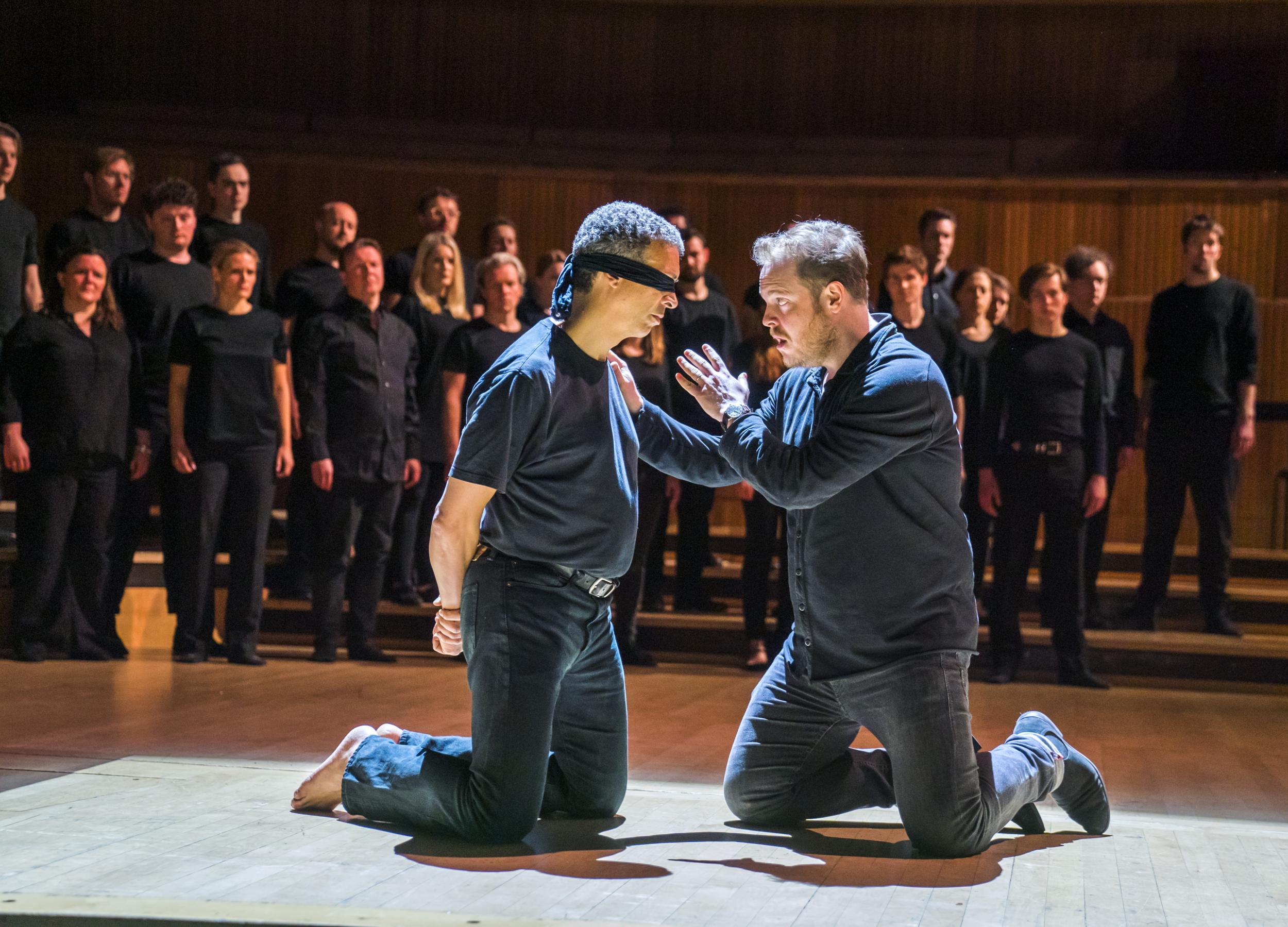Orchestra and Choir of the Age of Enlightenment with Simon Rattle, review: Staged version of Bach's St John Passion is a vivid piece of theatre
By the end all doubts about the staging have dissolved: this event really is an act of communal devotion

Your support helps us to tell the story
From reproductive rights to climate change to Big Tech, The Independent is on the ground when the story is developing. Whether it's investigating the financials of Elon Musk's pro-Trump PAC or producing our latest documentary, 'The A Word', which shines a light on the American women fighting for reproductive rights, we know how important it is to parse out the facts from the messaging.
At such a critical moment in US history, we need reporters on the ground. Your donation allows us to keep sending journalists to speak to both sides of the story.
The Independent is trusted by Americans across the entire political spectrum. And unlike many other quality news outlets, we choose not to lock Americans out of our reporting and analysis with paywalls. We believe quality journalism should be available to everyone, paid for by those who can afford it.
Your support makes all the difference.Should Bach’s Passions be staged? Increasingly they are, and there are good supporting arguments, particularly in the case of the St John Passion, which mostly meets the Lutheran requirement that congregations should experience the trial, death and resurrection of Christ with the utmost immediacy. The counter-argument is a simple one: music as dramatic as this needs no help from a theatre director. It is itself as vivid a piece of theatre as could ever be imagined.
With the Orchestra and Choir of the Age of Enlightenment, such thoughts surface as soon as the work embarks on its churning sea of sound. While the chamber orchestra gets going stage-right, the choir arrange themselves stage-left like a black-clad troupe of dancers, lying down and writhing to the rhythm of the music. Then, directed by Peter Sellars, they begin one of the gesturing hand ballets, which are this American director’s hallmark. But since these are choristers not dancers, some have trouble scrambling to their feet, and our attention is drawn to them and away from Bach’s world of sound; the massively concentrated focus of this divine curtain-raiser is thus dissipated.
But things settle down when Mark Padmore’s Evangelist begins to narrate in tones of compelling authority, with Roderick Williams as a kneeling blindfolded Christ. It’s impossible to separate this ancient story from what we see and hear in news from Syria and Iraq today, so close are the parallels.
Williams is a passive figure, occasionally breaking into patient, regretful song; Christine Rice’s gorgeous aria “Von den Stricken meiner Sunden”, and Andrew Staples’ equally gorgeous rendering of the aria in which Christ’s scourged back is compared to all the colours of the rainbow, are just two of the vocal high points in part one. Soprano Camilla Tilling’s delicately floated high notes and George Nigl’s sonorous baritone mark the opposite poles in this perfectly balanced vocal mix. Those crowning arias “Betrachte, meine Seel” and “Es ist vollbracht!” (“It is finished”) are beautiful beyond words.
Padmore’s voice becomes positively radiant as the work’s conclusion approaches, while the choir produces an exultant sound. Conductor Simon Rattle is in constant movement back and forth across the stage as he energises each group in turn. By the end all doubts about the staging have dissolved: this event really is an act of communal devotion.
It’s now going on tour to Luxembourg, Hamburg, and Frankfurt, but meanwhile the Southbank audience can savour a straight concert performance of Bach’s other Easter masterpiece, the St Matthew Passion, sung by the Bach Choir with an equally star-studded line-up of soloists on Sunday 7 April.
Join our commenting forum
Join thought-provoking conversations, follow other Independent readers and see their replies
Comments